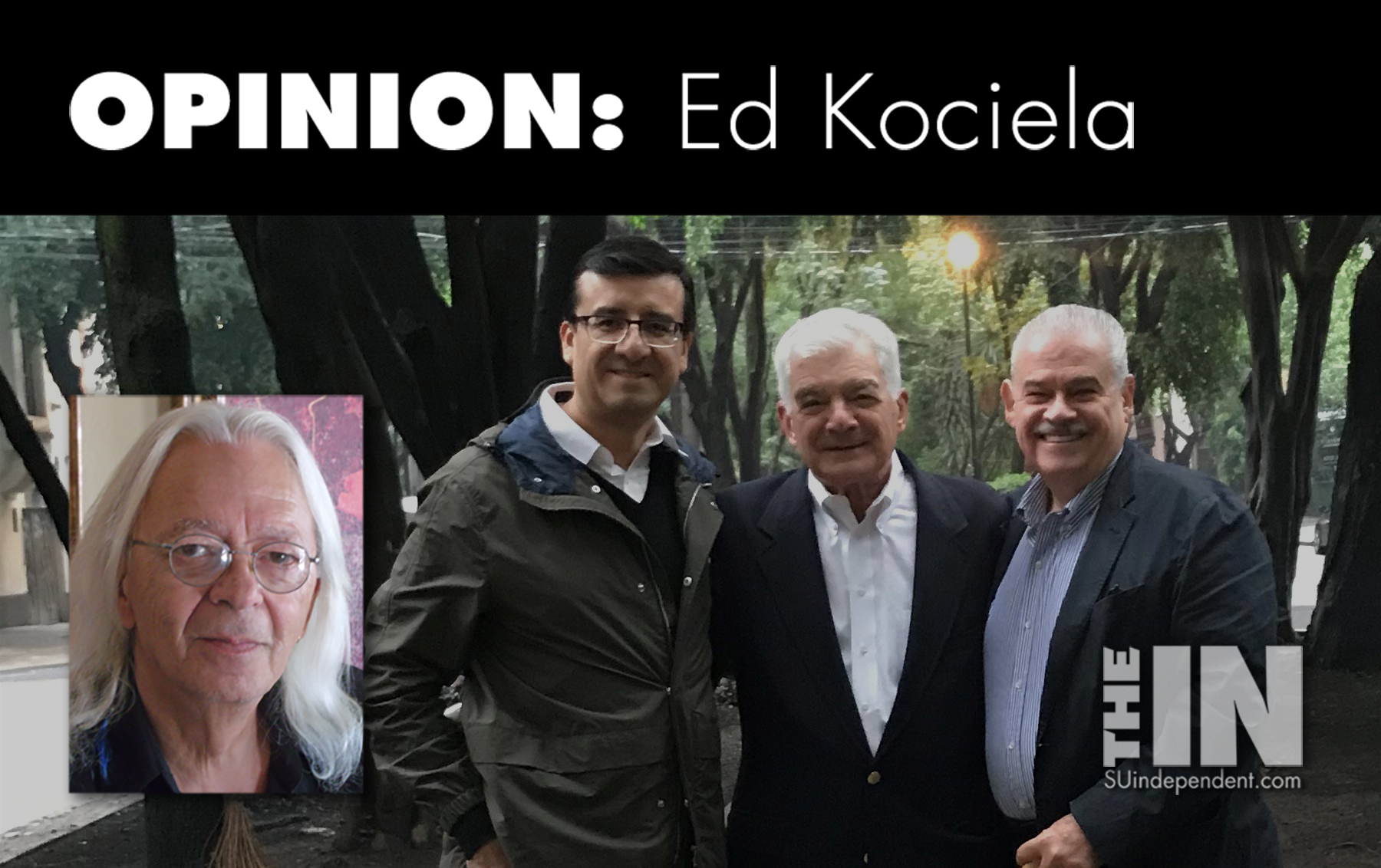
Populist Politics Can Be Deceiving
– By Ed Kociela –
On Sunday, Mexico tipped its toe into populist political waters with a special election to decide if the government should open investigations into its five previous presidents.
Politics in Mexico have always been messy, a peculiar mix of a young democracy that is still finding its footing and a history of corruption that has resulted in revolution, assassination, and a common distrust among the people. You don’t want to watch this sausage being made. But, before Mexico gets all hung up on populist practice, it would be well-served to study the United States, where they are still paying dearly after four years of populist mumbo jumbo dished by a conman who doesn’t have the good sense to know when to shut up and slither away.
Sunday’s referendum in Mexico was at the behest of President Andrés Manuel López Obrador, who promised to clean up a government historically riddled with corruption when campaigning for office. It was, in effect, a genuine populist ideal that voters latched onto. Many looked at it as a moment of political grandstanding, particularly among the older population of voters who had heard empty promises of fixing a system that had been badly broken forever. It was an increasingly difficult obstacle under the successive presidencies of Carlos Salinas, Ernesto Zedillo, Vicente Fox, Felipe Calderon, and Enrique Peña Nieto, who literally bought the election by giving 500 peso gift cards – at the time, worth about $50 in U.S. dollars, which goes a long way in Mexico – to those who brought their ballot slips to the major grocery stores in town. I saw it myself, standing in line at the store next to voters with the purple ink stain still on their thumbs and their ballot slips in their hand the day election results were certified. To say it was bizarre is an understatement. But, let’s be honest here. Corruption and greed are fully ingrained in U.S. politics. In Mexico, at least they are more open about it all and, to be honest, instead of just stuffing their own pockets, as do the politicians to the north, they are actually active in trying to serve the population.
Sunday’s referendum can go either way, and there are definitely arguments for and against it.
First, it allows López Obrador the opportunity to live up to a campaign promise, something the Mexican voters are unaccustomed to witnessing. But, the president has already proven that he is substantially different from his predecessors, promising to eliminate what he described as the rule of the “rapacious elite” and to “moralize public life.” These populist measures resonated with voters and, to his credit, he has lived up to his promises. He travels by commercial jet, drives a compact car, refuses traditional military bodyguards, and lives in his own modest house instead of the heavily guarded and opulent presidential palace.
But, there remain many questions, as well.
The referendum presents no evidence, no documentation of the accused sins of López Obrador’s predecessors; all it does is ask if they should be investigated. In effect, López Obrador is taking the pulse of the people, asking if they have the stomach to endure such an undertaking. I am willing to bet that the consensus is that the people will agree that investigations are necessary. Still, I am hesitant to predict if the required 40 percent turnout – required for the referendum to take hold – will be reached. If it does, it will cost Mexico about $25 million, a significant amount of money in a country that suffers from massive poverty and displacement. The question also makes us ask that if investigations do move forward, will these investigations be conducted to seek justice or fall victim to political prostitution, much like the Republicans who gave their morally bankrupt president a pass during both Senate trials after House impeachments.
Most importantly, I hope the Mexican government proceeds cautiously with this populist march. We saw what can happen when a populist takes the reins of a nation when Donald Trump took office. Historians have described it as populism that ran amok and a sort of sophomoric idealism that sounded good but could never work, swallowed up by a loyal coterie of hysterical followers. It damn near resulted in the overthrow of the government. The so-called war on elitism turned out to be political clickbait as the only war waged was against anybody who did not subscribe to the crowning of King Donald and the issuance of ultimate, unrestrained power without any of the checks and balances sewn into the fabric of the United States Constitution.
In other words, the Trump Era ushered out one form of perceived elitism and replaced it with another, which was based on tyranny and treachery, and only beneficial if you counted your money in the billions rather than the hundreds.
You see, populism is a double-edged sword, drawn by a strange mix of those of desperate means and those of unwavering loyalty to a Trojan horse that refused compassionate outreach to the unwashed masses. While it sounds good to let the public in on decision-making, it is impractical, and decisions are not often well thought out, tempered by emotion over fact, which means all you need to do is touch that fragile place in a person’s brain and trigger a response favorable to your aims. It’s how the Big Lie was so well-rooted, how masks and vaccinations became points of political ideology instead of scientific foundation, how a frenzied mob was directed to take up violence, storm the Capitol, and attempt to shred the Constitution.
Mexico is still finding its way as a democracy. It wasn’t until Fox was elected in 2000, really, that it shed its one-party political harness and, by all accounts, is still finding its feet.
That is why a populist like López Obrador was able to capture the presidency. It is, without question, why the Mexican government is still viewed through suspicious and contemptuous eyes.
Will it work?
Probably not.



